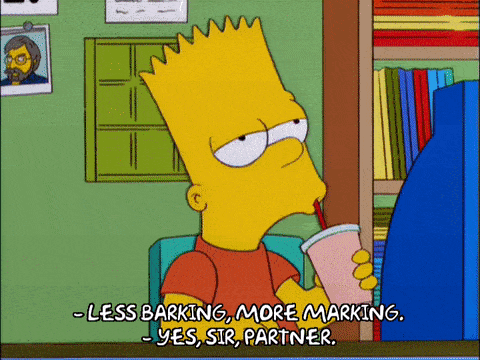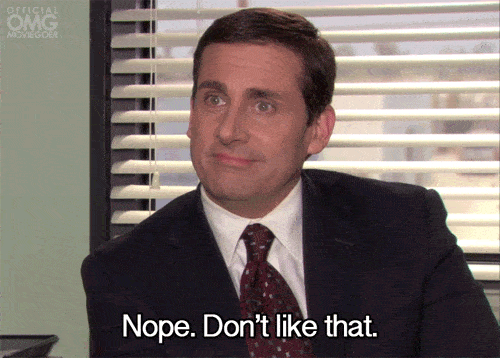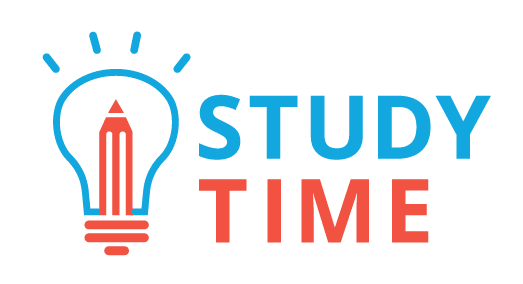Think back to the last time you got a less-than-ideal grade on a subject you thought you were sussed on. Maybe you tried to subtly tuck the marking sheet into your bag so nobody saw it. Maybe you joked it off with the classic, “haha, didn’t even study bro”.
No matter how you got through it, one overarching thought remained – you failed.
Except you didn’t fail, you did the best thing possible for your future self. Don’t believe me? Let’s discuss.
Failing Guides Your Revision
We all know that doing a past paper is a great way to study for a test. However, it’s important to note that the value doesn’t come from what you do during the past paper. The benefits come from what you do afterwards.
Once you’ve done what you can on a past paper, you’ll usually hop onto the NZQA website to have a geez at the marking schedule, or perhaps some exemplar answers if you’re feeling spicy. You’ll compare your answer to theirs, note down any bits you could improve on, and proceed with your day so much wiser.

Let’s be honest with ourselves – you’ll be wiser because you failed at that past paper. You were able to note down everywhere you went wrong, and doing so gave you a nice list of all the areas you can focus your revision on in future. When you see those same concepts again in your actual exam, you’ll remember exactly what you shouldn’t do, and your marks will be better for it.
It all sounds very easy in theory. All we’re suggesting is if you fail at something once, you’re way less likely to do it again. Of course, you and I both know there’s a lot more to it. To get down to the bottom of all this not achieved nonsense, we’ve got a few things to consider.
Re-defining Academic Failure
Failure is a broad concept that’s hard to pinpoint. For some students, failure is getting a Merit on a test they studied hard for, while for others, it’s a stone-cold Not Achieved with no resub opportunities. Either way, we’re usually looking at something called a micro failure.
Micro failures are things we perceive as failures, and consequently, negatively impact our self-worth. We can contrast these to macro failures, which are much more significant things that have serious effects on our lives. An example of a macro failure would be messing up your finances so bad, you enrol yourself into the next Squid Games. Failing a mock exam ≠ macro failure.

Let’s put it this way. If you’re always aiming for Excellence on every assessment, that’s great! What isn’t great is holding yourself to such an irrationally high standard that you perceive every grade less than Excellence as a macro failure. Doing so will put you on the highway to burnout, major stress, and a miserable work-life balance.
As students, what we want to focus on is setting realistic and flexible goals. For example, if your goal is to get Excellence endorsement for the year, you might feel pretty gutted if you only get a Merit on an internal, because you strictly wanted an Excellence. What we want you to keep in mind is that you’re putting a lot of pressure on yourself for something that’s ultimately not worth anything.
With maybe a few exceptions, all universities and scholarships are going to look at your overall academic transcript. So, if they’re not bothered by a Merit on a three-credit internal, why are you?
We encourage you to remember that your NCEA marks are hardly ever as earth-shatteringly important as they can feel at the time. Put that one assessment to scale in the grand scheme of your life, and ask yourself, is it really going to matter in a week? What about a month? Besides, is it valuable to willingly devote our time to worrying about something we cannot change?
Those are some big questions we’re asking here. We’ll let you be the judge.
What Good Has Success Ever Done?
Don’t get me wrong here, there’s nothing bad about smashing a test out of the park because you worked hard. You’ve just got to be careful, because success has a sneaky way of reinforcing the habits that lead you to that great outcome, regardless of whether your habits were good or bad.
If you think this sounds totally counterintuitive, let’s think about an example.
Imagine your friend handed in a practice English essay, and their teacher marked it as a nice comfy Merit. Pleased with that result, they rote learned (AKA, memorised) the whole shebang word for word, then regurgitated the whole thing on the day of their final exam. January rolled around, and their final grade was, just as they’d hoped, a Merit.
The chances of them rote learning their next major essay is pretty high, and it’s all because they fluked a good mark by doing so in the past. For the record, there are too many reasons why rote learning is the worst way to study, but they’re going to keep doing it, because it worked before.
Now, your friend is telling all of their friends to memorise their essays too, all because that one success told them that rote learning works! And it doesn’t – rote learning teaches you absolutely nothing.

All you’ve done here is cherry-pick out some anecdotal evidence that supports your not-so-effective behaviours. Your mate experienced a one-off situation in which rote-learning got them a good mark, and now they want to apply it to every exam they sit! Of course, this is going to backfire miserably – it’s only a matter of time.
How to Get a Positive Outcome From Failing
We aren’t going to lie – it isn’t as easy as failing a test and suddenly becoming that much smarter. In fact, failing can be a slippery slope to demotivation, lowered self-worth, and a whole lot of frustration. Don’t resign yourself to a lifetime of disappointment just yet, because you’ve got the power to turn it all around.
The Magic of Self-Reflection
We know it’s easier to hide your bad mark at the bottom of your NCEA records and never think about it again, but hear us out. Taking the time to find out where you went wrong, and how you can improve next time, is the key to self-improvement.
Just be sure to be honest with yourself about your abilities, and be proactive about revising the skills you aren’t too flash with long before your next test. If it wasn’t specific skills you were missing, maybe it’s time to interrogate your study techniques and ensure you truly know how to revise.
If you get stuck, we’ve got loads of other articles on revision skills that can help.
Becoming an Adaptive Perfectionist
Being an adaptive perfectionist means you aim to achieve the best results in your work, while knowing your limits and never pushing harder than what a project is worth. Adaptive perfectionists know how to be realistic, and never compromise their mental health and wellbeing for something that is ultimately not worth it … like NCEA results.

To get to this point, you’ll want to focus on identifying micro vs. macro failures. Be kind to yourself over micro failures, and be proud of those less than stellar mock exam results. Why? Because they’re teaching you something that an Excellence never could.
As if consistently improving your results wasn’t good enough, being an adaptive perfectionist boasts other benefits, like better long term resilience and better mental health. Sounds pretty lit to me.
To sum things up:
Here at StudyTime, we’re over the idea that students need to be getting Excellences from day one. We want to see students becoming adaptive perfectionists who are kind to themselves over any micro failures they experience.
Even though getting grades you weren’t expecting can feel awful sometimes, it’s never the end of the world. Not only will you be able to improve your studying, but over time, you’ll boost your self-assurance too. Just make sure you’re reflecting on what went down, and perhaps, history won’t be repeating itself anytime soon.

0 Comments